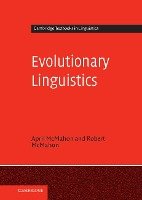How did the biological, brain and behavioural structures underlying human language evolve? When, why and where did our ancestors become linguistic animals, and what has happened since? This book provides a clear, comprehensive but lively introduction to these interdisciplinary debates. Written in an approachable style, it cuts through the complex, sometimes contradictory and often obscure technical languages used in the different scientific disciplines involved in the study of linguistic evolution. Assuming no background knowledge in these disciplines, the book outlines the physical and neurological structures underlying language systems, and the limits of our knowledge concerning their evolution. Discussion questions and further reading lists encourage students to explore the primary literature further, and the final chapter demonstrates that while many questions still remain unanswered, there is a growing consensus as to how modern human languages have arisen as systems by the interplay of evolved structures and cultural transmission.

